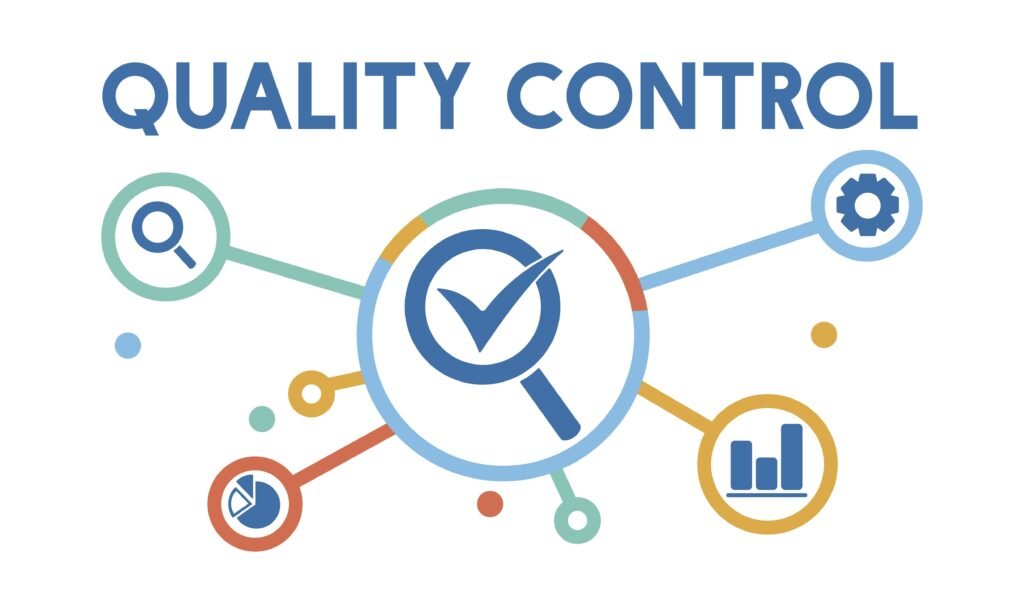Successful International Sales Strategies: Handling Trade Laws, Smart Work, Customer Relations, and Market Dynamics
Enhancing sales across nations requires a multipronged strategy that takes into account many facets of the marketplace, commerce, shipping, and policy. Here are a couple of tactics to think about:
Market Research (MR):
The act of collecting, evaluating, and applying data concerning the market being studied in order to make educated business choices is known as MR. MR is essential for comprehending the target market’s characteristics as well as spotting chances for development and entrance when it comes to enhancing exporting from one nation to another. Ascertain the intended customer’s scale as well as its direction. To determine the marketplace’s prospective, this entails examining elements like industry developments, financial metrics, and demographic data on the population.
Learn about the tastes, habits, and personality traits of consumers that impact their purchase behaviors. This might involve finding out what motivates demand in the target market through focus groups, surveys, or an analysis of consumer patterns. Examine the prospective market’s competitive landscape, taking into account the main rivals, their market share, advantages and disadvantages, as well as tactics. Examine their product lines, price policies, and methods of dissemination, including promotional efforts, to find areas where they may stand out from the competition.
Product Adaptation (PA):

PA is the process of altering what you provide in order to fulfill the requirements, tastes, and cultural history of your intended consumer base. This procedure makes absolutely certain your products are in demand by local clients and raises the possibility of achievement when branching out into new areas. The process of adapting a product is flexible and continuous, requiring both a thorough grasp of the demographic being targeted and a desire for creativity and change in response to changing customer preferences and demands. You may increase the attractiveness, relevance, and competitiveness of your goods and services in new markets by modifying them well. This will eventually lead to successful exports and long-term growth.
Quality Control (QC):
The methodical method of quality management makes sure that items and experiences continuously live up to the demands of consumers and satisfy predetermined quality standards. Effective quality control methods are crucial to enhancing exports from one nation to another, as they help the target market develop consumer happiness, trust, and a positive reputation.
Exporters may boost their ability to compete with credibility in worldwide marketplaces by putting effective quality assurance processes in place to guarantee that their goods and services continuously live up to high standards of quality and dependability. Meeting legal criteria is only one aspect of quality control; another is providing value and going above and beyond for customers in order to create lasting bonds and promote export success.

Marketing and Promotion:
The goal of “marketing and promotion” is to drive sales of goods and services in the target market by raising awareness, piquing interest, and creating a sense of urgency. Effective marketing and promotion techniques are crucial for connecting with and interacting with potential consumers, developing brand awareness, and eventually raising export sales in the context of enhancing exports from one nation to another. Exporters may boost their brand awareness, draw clients, and boost sales of their goods and services in foreign markets by putting up a comprehensive advertising and promotion plan. This will eventually help their exporting business succeed and expand.
Customer Support (CS):

Customer support, which entails offering help, answering questions, and addressing problems to guarantee a great experience for clients in the target market, is an essential part of a successful export strategy. Good customer service creates long-lasting connections with clients by fostering trust, loyalty, and referrals, all of which lead to repeat business and recommendations.
By placing a high priority on customer service and providing outstanding assistance, exporters may stand out from the competition, forge enduring bonds with clients, and develop a reputation for dependability and promptness in global marketplaces. Beyond simply fixing problems, customer service should also aim to surpass clients’ expectations and cultivate their loyalty in order to promote long-term, profitable business growth.
Continuous Monitoring (CM):
A proactive strategy for consistently tracking, analyzing, and assessing many facts of export operations and market dynamics is continuous monitoring. In order to spot problems, find opportunities, and promote continuous improvement, it entails routinely evaluating internal processes, market trends, customer input, and key performance indicators (KPIs).
Exporters may maintain their agility, responsiveness, and competitiveness in global marketplaces by using continuous monitoring and a proactive and iterative approach. Exporters may find opportunities, reduce risks, and promote sustainable growth in their export business by methodically monitoring important data, examining market trends, and obtaining feedback from their customers.
Trade Agreements and Tariffs:
Trade agreements and tariffs shape market access, price competitiveness, and exporters’ obligations to comply with regulations, all of which have a substantial impact on export performance. Exporters can make use of trade agreements to their advantage and prosper in global markets by utilizing preferential tariff treatment, adhering to rules of origin, and utilizing trade facilitation measures.

Smart Work:
A practice known as “smart work” places a strong emphasis on output, efficacy, and efficiency in finishing projects and reaching objectives. In order to maximise results while minimising wasted time and effort, it’s important to optimise your workflow, use resources effectively, and concentrate on high-impact activities. Strategic planning is the first step in smart work. This entails establishing priorities, laying out a clear plan of action, and establishing objectives. You can more efficiently manage your time and finances if you have a clear view of the big picture and can pinpoint important milestones.
The focus of smart work is effective time management. This entails employing methods like scheduling or the matrix developed by Eisenhower to prioritise tasks according to their significance and urgency. You can maximise your time by concentrating on high-value tasks and avoiding distractions. Instead of being output-oriented, smart work is outcome-oriented. Astute professionals concentrate on the outcomes they attain rather than gauging success based on the quantity of time or energy invested. This entails establishing precise, quantifiable objectives and routinely assessing your development to make sure you’re headed in the proper direction and smart work.
Collaboration and efficient communication are essential for smart work. This entails laying out expectations in plain terms, paying attention to what other people are saying, and encouraging a collaborative and team-oriented culture. By pooling resources and expertise, you can capitalise on your team’s advantages to accomplish shared goals. Ingenious professionals take an inventive approach to problems. Rather than being mired in dated thought patterns, they look for original answers and investigate different strategies. You can overcome challenges and discover fresh chances for development by accepting experimentation and gaining knowledge from mistakes.
The qualities of resilience and adaptability define smart work. Being adaptable and quick to change is crucial in the fast-paced, constantly evolving world of today. You can navigate ambiguity and keep moving forward by staying adaptable and resilient in spite of difficulties.
Summary
In business, smart export strategies take a multifaceted strategy, taking into account several facets of the market, trade, shipping, and regulations. Market research (MR), product adaptation (PA), marketing and promotion (CS), quality control (QC), customer support (CS), continuous monitoring (CM), trade agreements, smart work, and tariffs are some of the crucial strategies. To make wise business decisions, MR entails gathering, assessing, and using data on the target market.
While QC makes ensuring items fulfil quality standards and consumer requests, PA entails modifying products to match the needs of local consumers and their cultural background. In order to build enduring relationships and encourage export success, CS entails adding value and going beyond what is required for clients.
By increasing awareness, arousing interest, and fostering a sense of urgency, marketing and promotion seek to increase sales. CS entails offering assistance, responding to inquiries, and resolving issues to guarantee a satisfying experience for customers. CS encourages fidelity, trust, and recommendations, which results in recurring business and endorsements.
A proactive approach to following and evaluating export activities and market dynamics is continuous monitoring. It include assessing consumer feedback, market trends, internal procedures, and indicators of performance. Exporters can remain flexible, quick to respond, and competitive in international markets with the support of CM.
Finally, market access, pricing competitiveness, and exporters’ regulatory requirements are shaped by trade agreements and tariffs. By taking use of trade facilitation measures, rules of origin compliance, smart work, and preferential tariff treatment, exporters can take advantage of trade agreements and thrive in international markets.

Pingback: The Art of Smart Work(SW): An All-Inclusive Handbook for Su0